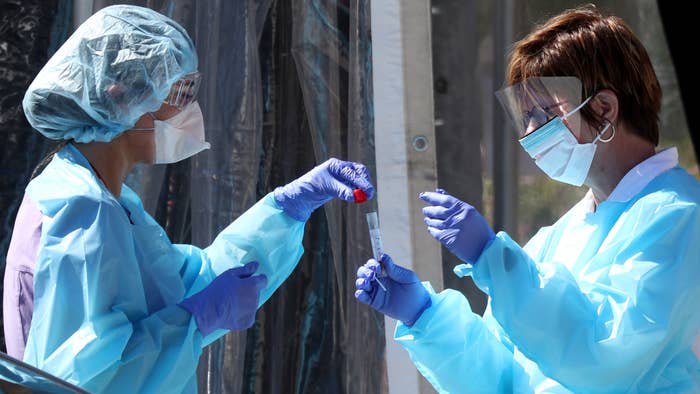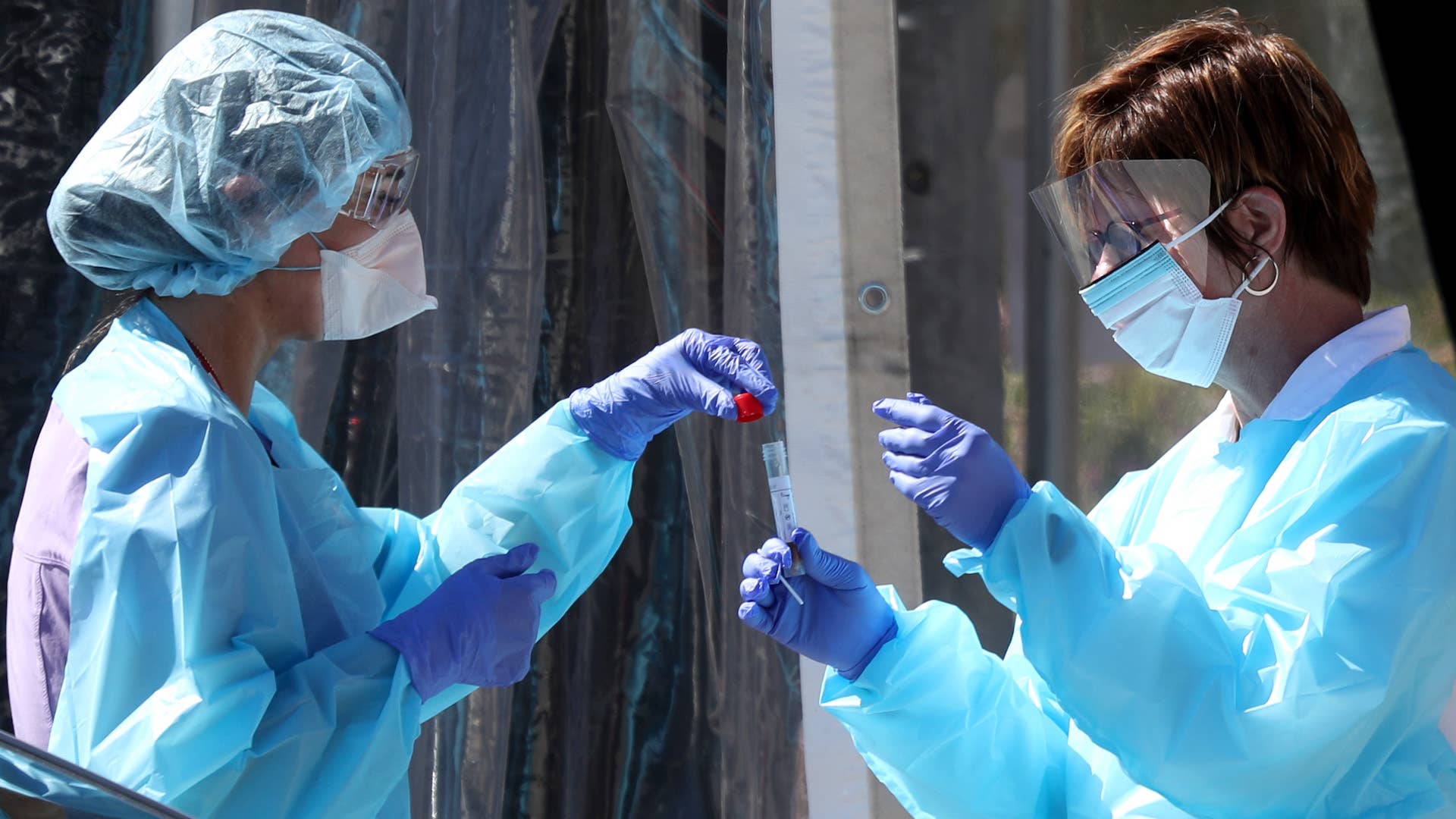
Not only can COVID-19 cause respiratory distress, it can also include neurological, cognitive, and psychological effects. Some patients have even experienced mental health problems and serious psychotic symptoms weeks after getting the virus.
“My guess is any place that is seeing COVID is probably seeing this,” Dr. Colin Smith, who works at Duke University Medical Center in Durham, told the New York Times. He recently treated a 36-year-old North Carolina nursing home employee who “became so paranoid that she believed her three children would be kidnapped and, to save them, tried to pass them through a fast-food restaurant’s drive-through window,” the publication writes.
Medical experts believe that this severe psychiatric dysfunction will only impact a small number of patients, but such cases are being used as examples of how COVID-19 can affect mental health and brain function. Psychological effects can be seen even in patients who didn’t endure extreme lung, heart, or circulatory problems, with most of the patients admitted for psychosis having not experienced extreme cases of coronavirus.
Dr. Hisam Goueli of South Oaks Hospital in Amityville, New York said his patients had no respiratory issues, but they did experience neurological symptoms like hand tingling, vertigo, headaches, or diminished smell. Weeks to months later, he's observed people who “develop this profound psychosis, which is really dangerous and scary to all of the people around them.”
It’s startling that most of the patients have been in their 30s, 40s, and 50s. “It’s very rare for you to develop this type of psychosis in this age range,” Dr. Goueli said. Some patients also realized something wasn’t right, while typically “people with psychosis don’t have an insight that they’ve lost touch with reality.”
Some of the patients needed to be hospitalized for weeks while doctors tried to find a medication that would help. It’s unclear why some have been prone to psychological effects, and experts don’t know if it has to do with genetic makeup or an undetected proclivity for psychiatric illness that allows some to be at greater risk. Intermittent cases of post-infection psychosis and mania have been seen with other viruses, including the 1918 Spanish flu, and the coronaviruses SARS and MERS.

